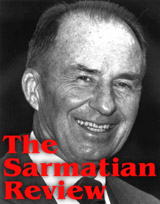| This Issue | Back Issues | Editorial Board | Contact Information |

Spory o krytyke literacka w Dwudziestoleciu miedzywojennym
Reviewer: Adam Fitas
Spory o krytyke literacka w Dwudziestoleciu miedzywojennym
(Debates on Literary Criticism in the Interwar Period) By Dariusz Skórczewski. Kraków: Universitas, 2002. 404 pages. Bibliography and Index. Paperback. Zl. 31.20. In Polish.
Dariusz Skórczewski's doctoral dissertation, now published as a book, is an innovative synthesis of the discussions on the theory and methodology of literary criticism in Poland between 1918-1939. It critically recreates the heated debates on the nature, functions, role, and criteria of literary criticism, many of which contributed to contemporary understanding of criticism. The topic is presented against a wide background of European developments in politics, philosophy, methodology of humanities, and religious affairs, thus providing the reader with a comprehensive insight into the most intensive period of the meta-critical discourse in the history of Polish criticism. The author focuses on three basic aspects of the dispute. First, he discusses and interprets polemics about the status of criticism compared to the position of literary scholarship on the one hand, and literature on the other. Skórczewski formulates the thesis about criticism as a distinct writing discipline situated between literary studies and literature and thus closer to the German tradition of narrow das Kritik rather than the English pattern of wide-ranging "literary criticism." Second, he seeks to answer the question of how this new type of awareness regarding the unique character of critical discourse influenced the critics' choices of genre and style, as well as their public function as mediators between authors and audience. In this part of his dissertation Skórczewski brilliantly demonstrates how critics managed to defend their autonomy in the literary life of the new Poland in spite of fierce attacks by the consolidated literary milieu that was hostile to scholarly criticism. Third, the author considers the struggles for criteria between critics representing different ideological orientations, such as Christian personalism, right-wing nationalism, progressive liberalism, and Marxism. Skórczewski argues that, based on Stanislaw Brzozowski's and Karol Irzykowski's writings, the young critics of the so-called "1910 generation" such as Ludwik Fryde and Kazimierz Wyka established a new model of critical activity which blended two opposite approaches toward literary values: the esthetic (or "formalist"), and the ethical. The author interestingly shows how, by integrating the realm of "arts" with the sphere of "life," literary criticism in Poland actually became a moral activity and a tool in shaping both the artists' consciousness and society's moral sensitivity. This in turn resulted in assigning to critics a role that, according to the Polish Romantic tradition, should have been played by poets.
The book concludes with a flash-forward of the conditions of postwar literary criticism in Poland, showing connections with as well as differences from what was achieved in the theory of literary criticism during the interwar period.
Back to the September 2003 issue
The Sarmatian Review
sarmatia@rice.edu
Last updated 10/03/03